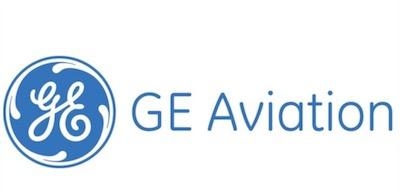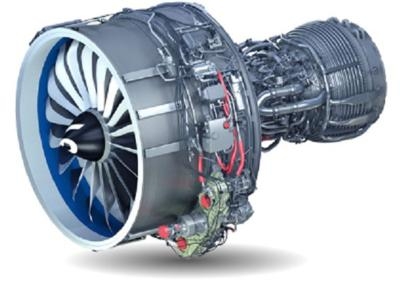Strong Jet Engine Sales Drive Record Profits
General Electric stated on 09 March 2023 that its GE Aviation subsidiary’s revenues are forecast to grow by at least low-double-digits through 2025, thereby boosting the company’s shares and shareholders’ spirits to levels not seen since 2018. GE’s strong performance has been ascribed to surging post-COVID demand for air-travel and a commensurate spike in demand for new Boeing and Airbus airliners, many of which are powered by GE jet engines.

GE Aviation shares rose 6.5-percent after Chief Executive Larry Culp set forth at the company’s annual day for investors that a recession was “the last thing on our mind.”
Culp added that GE, though not recession-proof, is enjoying “incredible” order backlog and demand, stating the company expects its aerospace business to generate 2023 operating profits of between $5.3-billion and $5.7-billion.
The Boston-based conglomerate’s shares have benefited from strong aerospace demand and the recent spinoff of its healthcare business, even as its renewable energy unit has struggled.
GE, notwithstanding a generally dreary overall economic outlook and persistent supply shortages, stuck to its 2023 profit expectations. The company expects adjusted earnings per-share of $1.60 to $2.00, with revenue growth in the high-single-digits.
Mr. Culp added: “We’re well positioned to have a strong year.”
GE expects profit margins at GE Aerospace to be about twenty-percent through 2025—so company executives informed investors at the Ohio conference.
Speaking to the subject of GE’s energy business, analyst Nigel Coe stated: “The bottom line is that management are putting out pretty impressive targets for Aero through 2025, with the long-term framework for Vernova also above our base case.”
GE stated also that repair revenues deriving of the CFM56 engine by which previous generations of Boeing and Airbus narrow-body aircraft were powered are apt to remain lucrative for years to come. Older aircraft are being kept in service longer as plane-makers struggle to raise production.
The news wasn’t all cheery for GE shareholders, however. Mr. Culp explained that supply-chain woes and labor shortages had adversely impacted jet engine production. Culp went so far as to concede meeting jet engine demand is a daily battle for GE production facilities.
GE advised it was aligned with Boeing and Airbus vis-a-vis demand for LEAP jet engines through 2024, adding that 2025 supplies were being discussed as part of a standard process.
Engines supplied by CFM International, GE’s joint venture with France’s Safran, power Boeing’s 737 MAX jets and about half of Airbus’ ubiquitous A320/321neo family.
Culp’s comments implied a commitment to support Airbus’s plan to increase narrow-body aircraft production from 45 to 65 jets per month, but fell short of expressing GE’s ability to support the consortium’s desire to further increase narrow-body production to a whopping 75 aircraft per month. In February 2023, Airbus asserted it could reach production of 65 narrow-body airliners per month by the end of 2024. The Airframer plans to produce 75 such aircraft per month in 2026.

Airbus—perhaps foolhardily—has expressed confidence that demand for its aircraft will support the heightened production rates. The plane-maker has, however—on account of supply-chain shortfalls—allowed its facilities and personnel an additional year to gear up for the effort.
Contrariwise, GE Vernova, the company’s portfolio of energy businesses, including renewables, is expected to report an operating loss of between $200-million and $600-million in 2023.
The troubled renewable business is expected to be profitable in 2024, GE alleged. However, subject subsidiary—due to weak demand, higher raw materials and labor costs, and supply-chain pressures—has failed to turn a profit in the past eight quarters.
The antecedent troubles have cast a shadow over GE’s spin-off timeline for Vernova. Nevertheless, Culp averred his company’s energy businesses are “preparing to stand on their own sometime in early 2024.”
 ANN's Daily Aero-Term (04.25.24): Airport Rotating Beacon
ANN's Daily Aero-Term (04.25.24): Airport Rotating Beacon ANN's Daily Aero-Linx (04.25.24)
ANN's Daily Aero-Linx (04.25.24) Klyde Morris (04.22.24)
Klyde Morris (04.22.24) Airborne 04.24.24: INTEGRAL E, Elixir USA, M700 RVSM
Airborne 04.24.24: INTEGRAL E, Elixir USA, M700 RVSM Airborne 04.22.24: Rotor X Worsens, Airport Fees 4 FNB?, USMC Drone Pilot
Airborne 04.22.24: Rotor X Worsens, Airport Fees 4 FNB?, USMC Drone Pilot




